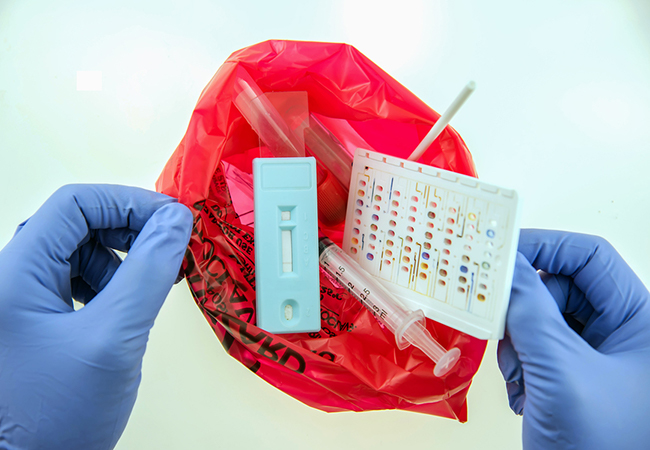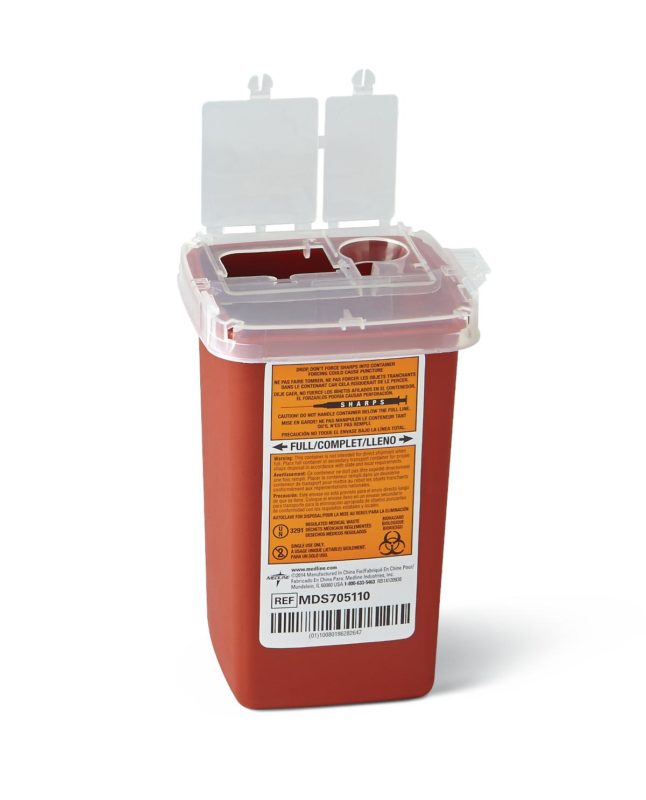Safeguarding Health: Professional Medical Waste Removal Services for a Tidy Setting
Minimizing Risks and Protecting Public Wellness: The Role of Medical Garbage Disposal
In today's globe, where public wellness concerns are constantly on the rise, the appropriate management and disposal of medical waste play an essential function in reducing threats and securing the wellness of neighborhoods. As medical facilities generate a substantial amount of waste that can possibly position serious wellness and ecological threats, it becomes essential to understand the relevance of applying efficient methods for its safe handling. In this conversation, we will certainly explore the threats related to poor clinical waste administration, explore the laws and guidelines that regulate its disposal, and highlight the benefits of taking on safe techniques. By diving right into this subject, we will reveal the pivotal duty clinical garbage disposal plays in shielding public health and wellness and the atmosphere.
Value of Proper Clinical Waste Disposal
Proper clinical waste disposal is of utmost value in making sure the safety of medical care workers and the public. medical waste disposal services with WasteX. Clinical waste, which includes things such as utilized needles, syringes, contaminated materials, and pharmaceutical waste, positions significant health dangers otherwise disposed of appropriately
The key factor for correct medical garbage disposal is to avoid the transmission of transmittable conditions. Healthcare workers are particularly susceptible to contracting and spreading out diseases via direct exposure to contaminated waste. By applying ideal disposal methods, such as making use of puncture-resistant containers and making certain the right segregation of various sorts of waste, the threat of infection can be minimized.
Furthermore, appropriate medical waste disposal is vital for protecting the setting. Some clinical waste consists of hazardous chemicals and compounds that can pollute soil and water resources if not handled appropriately.
In enhancement to safeguarding human health and wellness and the environment, appropriate medical garbage disposal additionally plays a role in preserving the reputation and trust of health care establishments. Correct disposal methods show a commitment to safety and professionalism and reliability, which is crucial for preserving public confidence in healthcare solutions.
Threats Connected With Inadequate Medical Waste Management
Inadequate medical waste monitoring presents substantial risks to public health and the atmosphere. Incorrect disposal of clinical waste can result in the spread of infectious illness, contamination of water sources, and the release of toxic chemicals into the atmosphere.
Another risk is the contamination of water sources. Incorrect disposal of clinical waste can lead to the launch of unsafe chemicals and microorganisms right into water bodies, infecting the water supply and posturing a threat to both animal and human health. This contamination can happen via the incorrect disposal of pharmaceuticals or the discharge of unattended clinical waste into water bodies.
Furthermore, insufficient clinical waste monitoring can cause the launch of toxic chemicals into the setting. Several medical items have unsafe materials, such as mercury, lead, or contaminated products. If these materials are not thrown away properly, they can seep into the soil or water, posturing a risk to ecological communities and human wellness.

Efficient Approaches for Clinical Waste Handling
Implementing secure and efficient techniques for the handling of medical waste is important in guaranteeing the defense of public health and the atmosphere. Medical waste, such as sharps, infected materials, and drugs, can pose significant risks if not taken care of effectively. To mitigate these risks, health care facilities should adopt reliable methods for clinical waste handling.
Appropriate partition entails separating different kinds of waste at the factor of generation. Healthcare facilities need to offer clear guidelines and training to team on how to segregate waste effectively.
Another important method is the use of protected containers (medical waste disposal services with WasteX). Medical waste ought to be saved in watertight and puncture-resistant containers that are identified properly. These containers should be securely shut to protect against any type of spills or leaks during transportation and storage space. Routine assessments and upkeep of these containers are needed to ensure their integrity.
Appropriate paperwork is also essential for effective clinical waste handling. Health care facilities ought to preserve exact records of the kind and quantity of waste created, along with the disposal methods made click to find out more use of. This documentation aids in tracking and surveillance waste administration techniques, making sure compliance with guidelines, and identifying areas for improvement.
Last but not least, health care centers ought to develop clear protocols for the transport and disposal of clinical waste. This consists of working with trusted and licensed waste administration firms that follow correct handling, treatment, and disposal procedures. Routine audits and examinations ought to be performed to verify compliance with policies and sector best practices.

Laws and Standards for Clinical Waste Disposal
To ensure the appropriate and secure monitoring of clinical waste, medical care facilities should comply with guidelines and regulations established by relevant authorities. These laws and standards are placed in area to protect public health, prevent environmental contamination, and reduce the risk of contagious conditions.
In lots of nations, such as the United States, the management of medical waste undergoes rigorous laws imposed by government agencies such as the Epa (EPA) and the Occupational Safety and Health Management (OSHA) These policies describe the demands for the segregation, packaging, labeling, storage space, transportation, and disposal of clinical waste. medical waste removal services. They likewise provide standards on using personal protective devices (PPE) and the application of infection control procedures
Healthcare centers are needed to develop and execute comprehensive clinical waste management intends that address all elements of waste handling. These plans must include procedures for waste partition, the use of ideal containers, worker training on waste monitoring techniques, and regular surveillance and auditing of waste handling procedures.
Additionally, medical care facilities must preserve precise records of their waste management tasks and guarantee that garbage disposal is carried out by certified and certified waste monitoring companies (medical waste disposal services with WasteX). Non-compliance with these regulations can result in penalties, fines, and lawful effects
Advantages of Safe Medical Garbage Disposal for Public Wellness
Proper adherence to policies and guidelines for medical waste disposal not only guarantees the risk-free management of waste yet also offers significant advantages for public health and wellness. The secure disposal of clinical waste plays a critical duty in avoiding the spread of contagious illness and safeguarding the well-being of healthcare workers, clients, and the general public.
Among the major advantages of secure medical waste disposal is the reduction of disease transmission. Clinical waste, such as utilized needles and contaminated materials, can harbor transmittable virus that posture a serious threat to human health and wellness. By appropriately segregating, product packaging, and disposing of clinical waste according to policies, the possibility for condition transmission is lessened. This, in turn, aids to preserve a clean and safe health care setting.
Furthermore, secure medical garbage disposal likewise read what he said aids to alleviate environmental pollution. Inappropriate disposal of clinical waste can lead to the contamination of water, dirt, and air, which can have detrimental effects on communities and public wellness. By complying with correct disposal protocols, the threat of environmental air pollution is lessened, making sure the wellness of both people and the environment.
Additionally, proper clinical waste disposal methods also add to the general performance and sustainability of healthcare systems. By applying safe disposal approaches, healthcare centers can reduce the threat of mishaps, injuries, and infections among their personnel, resulting in improved efficiency and reduced healthcare expenses.
Final Thought
In final thought, making sure correct clinical waste disposal is vital for reducing threats and shielding public health. By implementing secure clinical waste disposal methods, we can safeguard public health and wellness and produce a much healthier environment for all - medical waste removal services.
In today's globe, where public wellness worries are continuously on the surge, visit the site the appropriate management and disposal of medical waste play a crucial role in lowering threats and protecting the well-being of communities. By diving right into this subject, we will reveal the essential function clinical waste disposal plays in securing public health and wellness and the setting.
Inappropriate disposal of clinical waste can lead to the launch of unsafe chemicals and virus into water bodies, infecting the water supply and presenting a danger to both animal and human wellness.In conclusion, ensuring proper medical waste disposal is critical for decreasing threats and safeguarding public wellness. By executing risk-free medical waste disposal practices, we can secure public health and create a much healthier environment for all.